To make the publication more modern and financially stable is the task mentors of the educational project titled Steps To Sustainable Development set before its participants-representatives of local media newsrooms from the front-line and de-occupied territories.
Out of 27 participants in the theoretical part, 15 were selected for implementing the mentor’s recommendations in practice. They have now moved on to practical tasks.
“In August, everyone received homework under separate directions. The tasks are related to monetization, the receipt of additional income,” said in a comment for the National Union of Journalists of Ukraine (NUJU) mentor Kostiantyn Hryhorenko, who helps project participants to strengthen the economic sustainability of their publications. “After all, everyone understands that donor money is not forever, and in order to survive, publications must learn to earn money on their own.
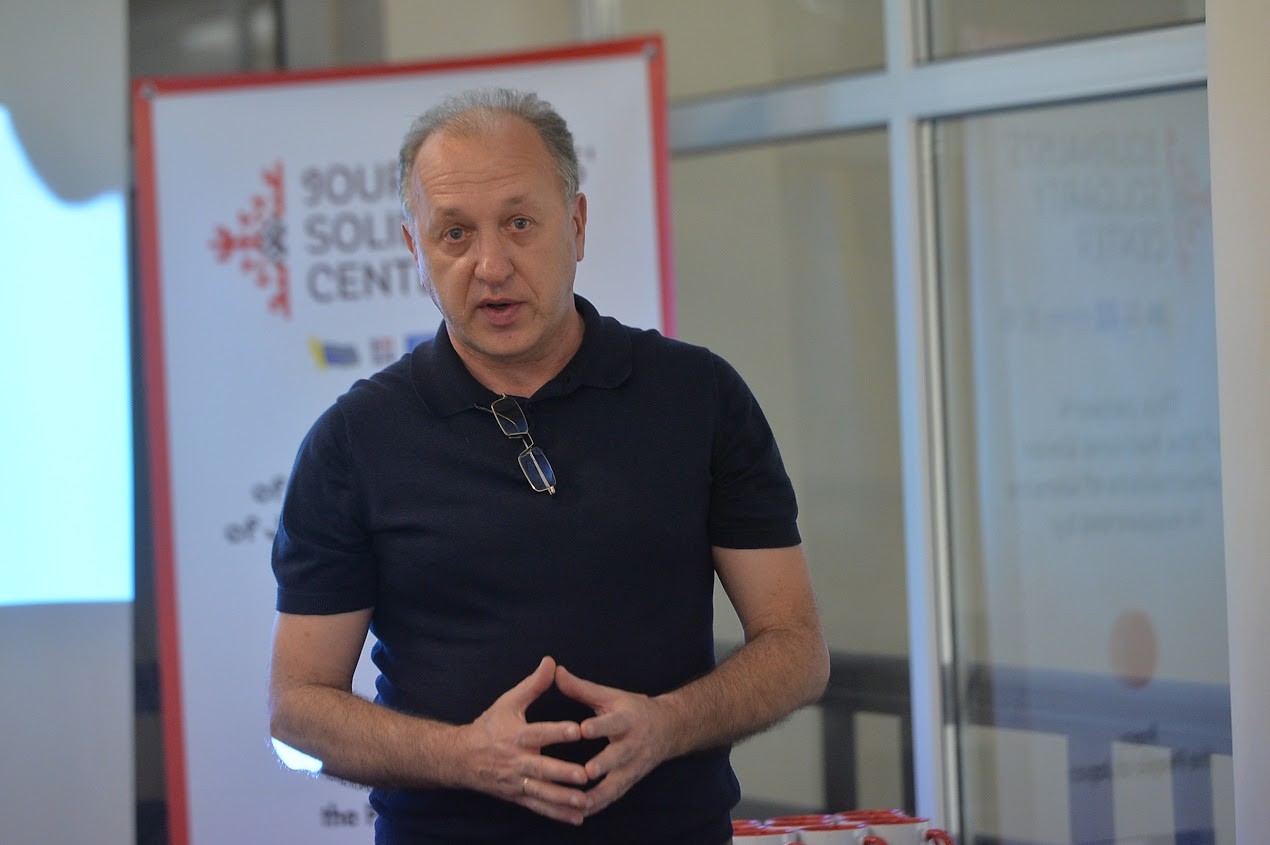
Another task from Kostiantyn Hryhorenko is to find new ways of distributing newspapers and conducting subscription campaigns. Even relocated publications are currently working on remote organization of their subscription. In particular, the project participants are working out the possibilities of subscription without the involvement of Ukrposhta [the state postal service], which almost all newspapermen have very serious complaints about.
According to media experts, the future of newspapers lies in the combination of the printed edition with its digital forms: Internet sites and social networks. How to do it – the project participants were first explained, and now mentor Andrii Yurychko, who is also a journalist and media trainer of the Academy of Ukrainian Press, helps them practice.
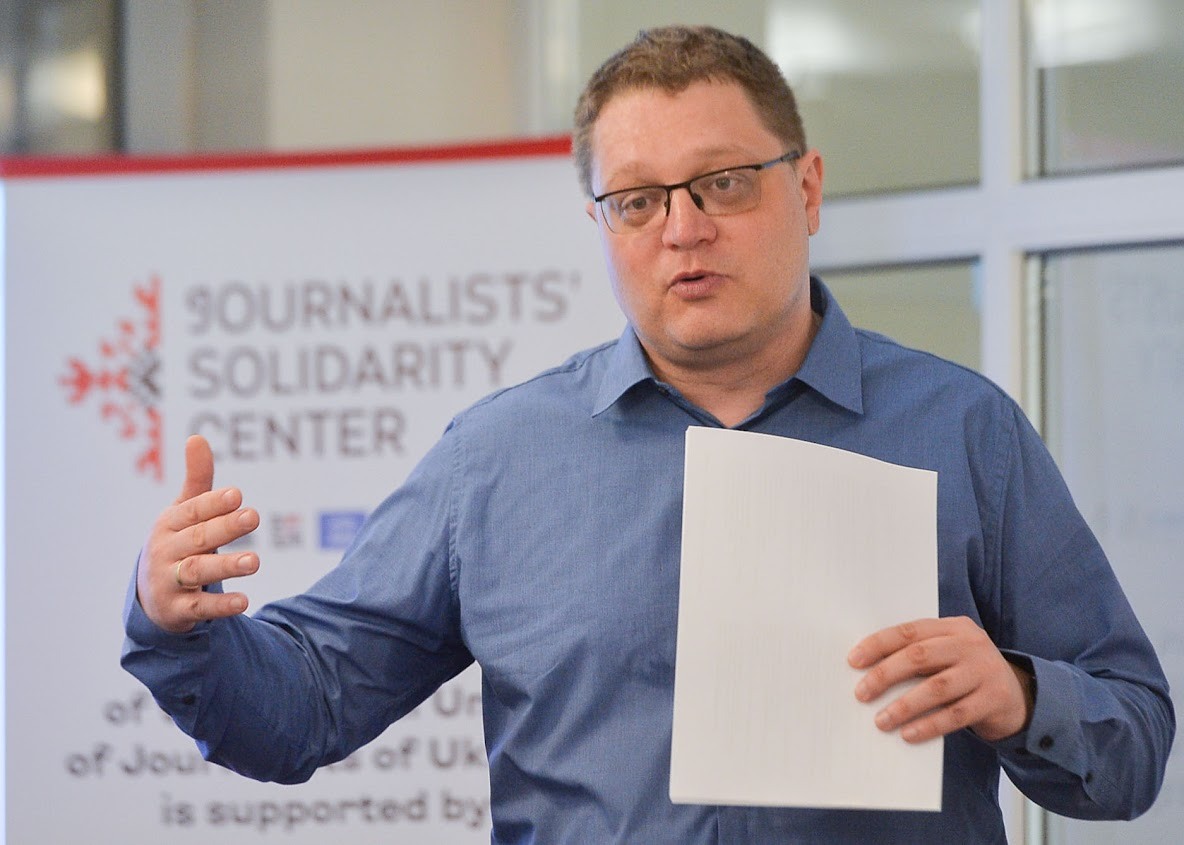
He sets himself the goal not only to give his colleagues information “for general development” but also to improve their publications – both as printed press and as online resources.
“Currently, the project participants are performing two tasks: measuring their audience (not by technical indicators, but through a survey) and creating a video announcement – introducing the editor-in-chief, who talks about the most interesting things in their newspaper,” Andrii Yurychko said in a comment for the NUJU.
The purpose of these tasks is multifaceted, from conducting a promotion to increasing the number of subscribers. In addition, the mentor tries to show the project participants that there is nothing difficult in conducting surveys and creating video announcements; every journalist can do it.
Project participants say that the acquired knowledge and skills are already useful to them. For example, Andrii Yurychko‘s advice to run social networks as a completely independent medium, and not as a supplement to print media, to “unpack” large materials into small publications on the Internet with a link to a large material was useful – all this immediately helped to increase site attendance many times over. Kostiantyn Hryhorenko also gave a lot of important advice regarding financial donors, website developers, earning from printing, etc.
“The mentoring support is very good,” says Svitlana Ovcharenko, the editor-in-chief of the Bakhmut Vpered newspaper. “I did not miss a single event. I just had an online meeting with Andrii Yurychko. There, we discussed video announcements. We have done this before, but he explained how to create them correctly and explained that it is important that they appear constantly so that the readers permanently encounter the publication.”
Yevhen Khrypun, the editor-in-chief of the Mezhivskyi Merydian newspaper, which is published in the village of Mezhova in the Dnipropetrovsk Region, says that even considering the fact that he has been working for the newspaper for more than 20 years, the educational and enlightenment projects of the NUJU are very useful for him.
“Today, Ukrainian regional publications are widely read not only in Ukraine, but also abroad,” notes the editor. “It is important that during such training sessions, we perfect ourselves. And it is important that they are conducted by our Ukrainian colleagues who know our problems well.”
According to Iryna Kosharska, the editor of the Visti newspaper from Novovorontsovka, Kherson Region, it is communication with experienced mentors that helps editors focus and look for ways to improve themselves.
“Now, taking into account the advice of mentors, we started using artificial intelligence – GPT-chat to write short notes (it makes the work much easier). We are planning to change the website platform to a more modern one. We established cooperation with exchanges of direct advertising. In order to attract readers and advertisers, we introduce coupons for free ads,” says Iryna Kosharska.
The participants in Steps To Sustainable Development emphasize that such projects are also important because they allow colleagues from different publications to meet, communicate with each other, and exchange helpful experiences. And often, important discoveries of someone alone can also support the financial stability of other publications. Finally, a sense of professional solidarity is also important because it inspires and supports journalists from the front-line and de-occupied territories – those who work in dangerous conditions and have been forced to relocate.
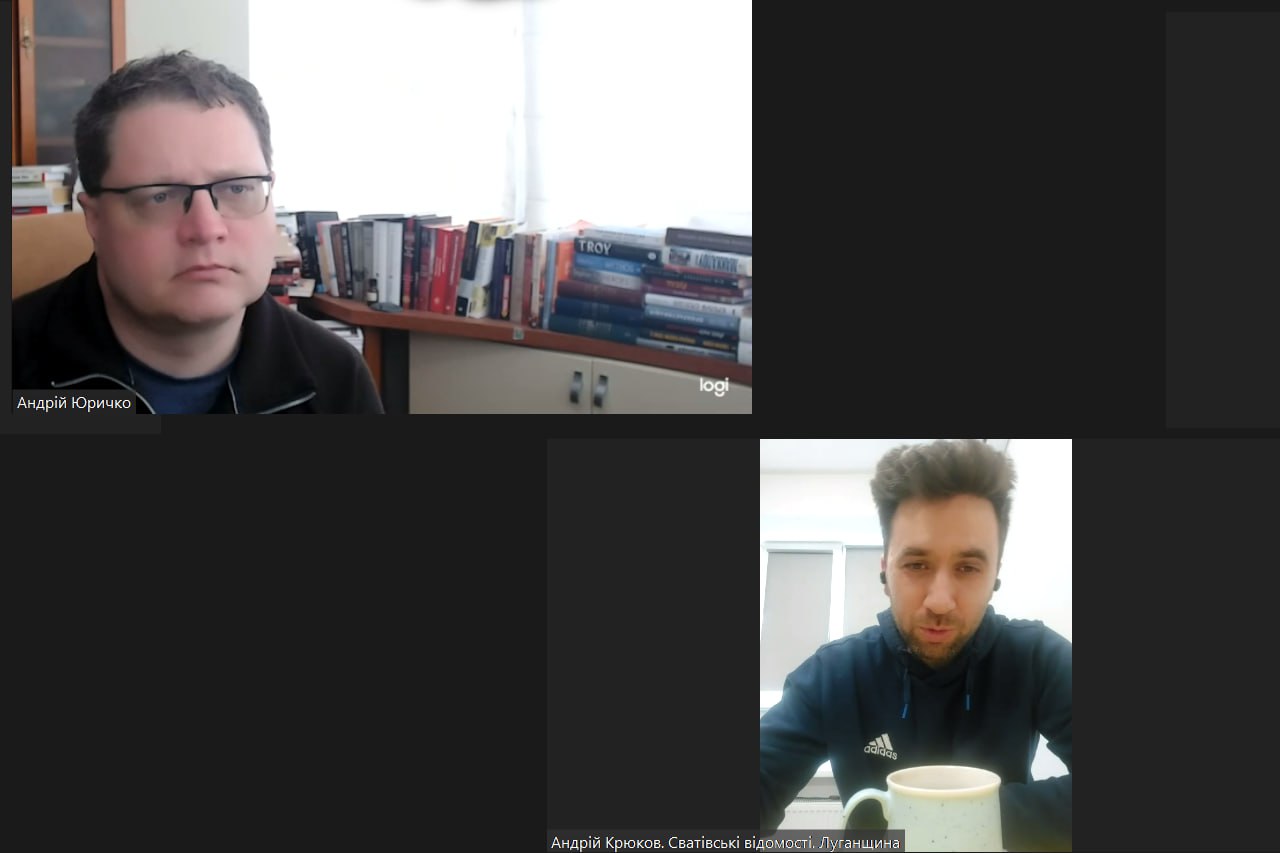
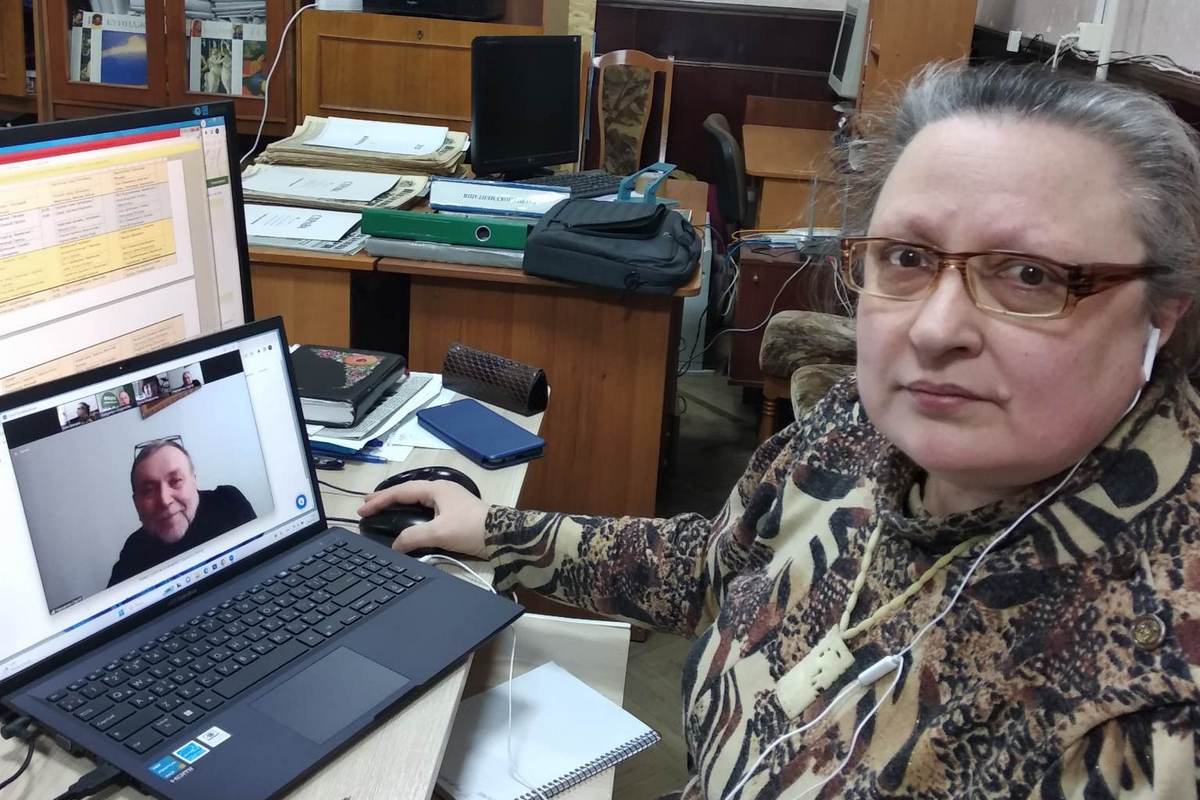
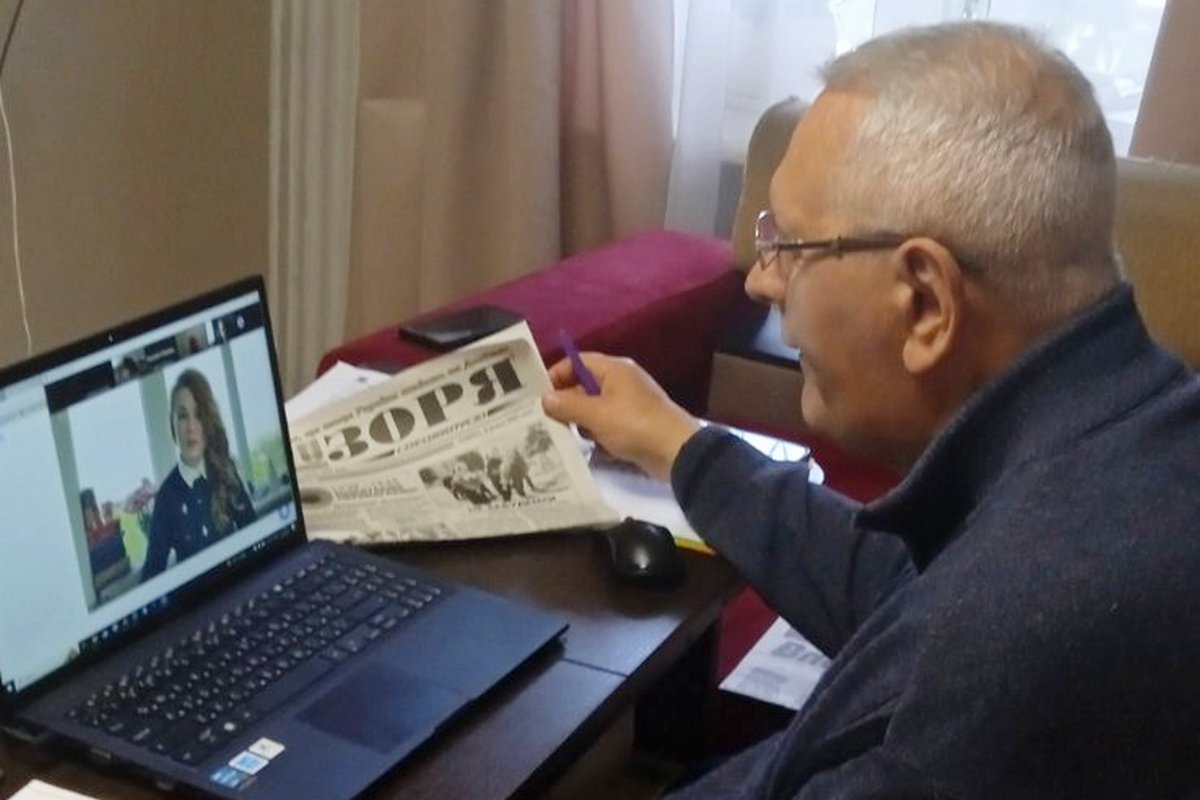
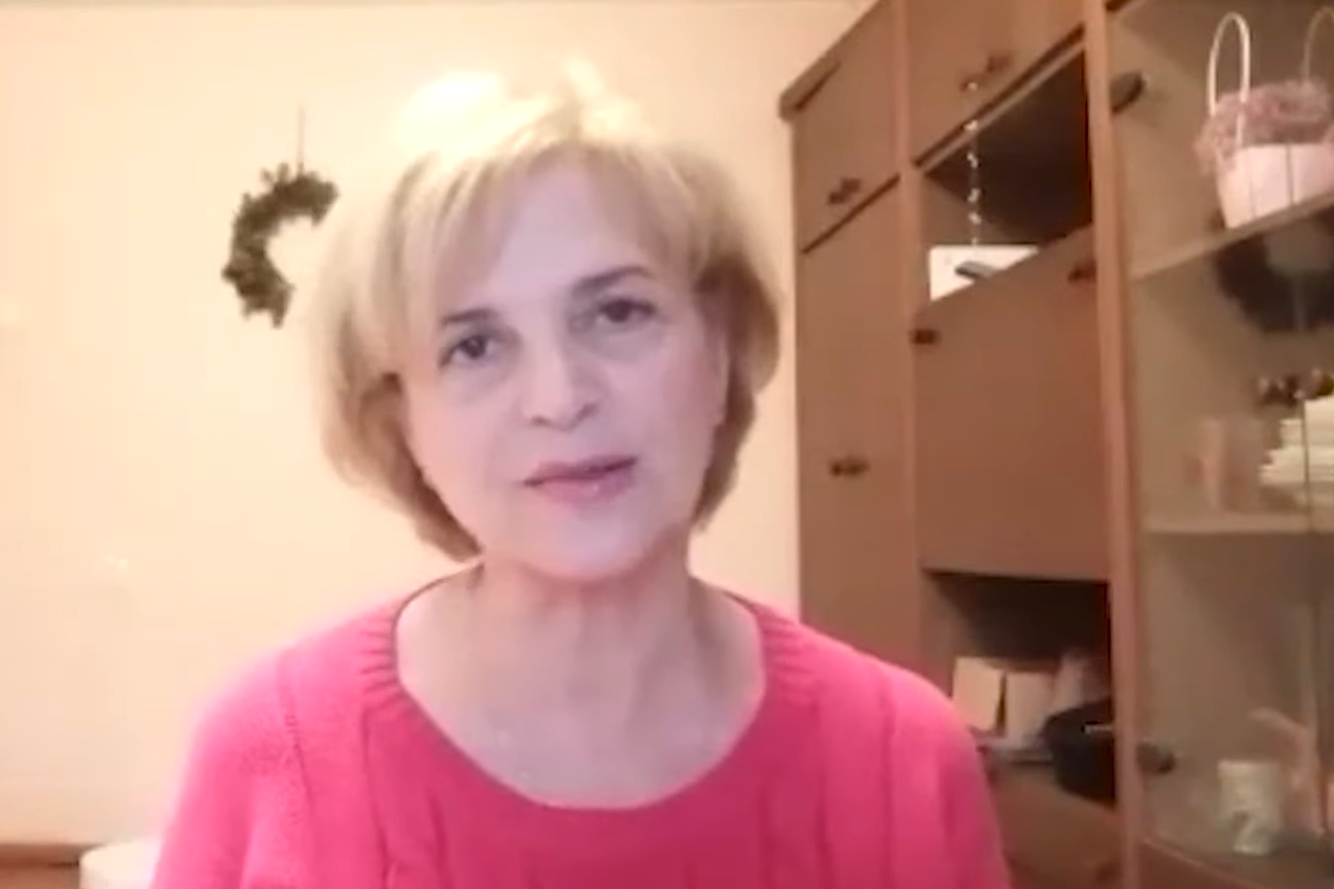
“We are sincerely grateful to the National Union of Journalists of Ukraine, its head Sergiy Tomilenko, who called at the most difficult time and supported us, and then initiated the restoration of our publications,” says Svitlana Ovcharenko. “Without this support, there would be no revival of front-line newspapers. I never dreamed that our newspaper could be revived. How? [The city of] Bakhmut is non-existent – but the newspaper is there! And, seeing our newspaper, the people staying in the Bakhmut hubs in the rear settlements of Ukraine wonder: “What is this? Is this our Vpered? Where from?!” The finances, knowledge, and skills we get thanks to the NUJU are invaluable in our time.”
The educational and enlightenment project Steps To Sustainable Development is carried out by the NUJU with the support of the Japanese government and UNESCO. A total of 27 printed publications from the front-line and de-occupied territories of Ukraine took part in this project. Events are held both in the form of webinars and in the form of individual consultations, during which participants can communicate with a mentor, ask practical questions, and receive specific answers. Training continues from May. The main task is to help each publication get on its feet, modernize approaches to content creation, gain knowledge about digital platforms for media promotion, and search for new opportunities.
ABOUT UNESCO
UNESCO is the United Nations Educational, Scientific, and Cultural Organization. It contributes to peace and security by promoting international cooperation in education, sciences, culture, communication, and information. UNESCO promotes knowledge sharing and the free flow of ideas to accelerate mutual understanding. It is the coordinator of the UN Action Plan on the Safety of Journalists and the Issue of Impunity, which aims to create a free and safe environment for journalists and media workers, thus strengthening peace, democracy, and sustainable development worldwide. UNESCO is working closely with its partner organizations in Ukraine to provide support to journalists on the ground.
The designations employed and the presentation of material throughout this digest do not imply the expression of any opinion whatsoever on the part of UNESCO concerning the legal status of any country, territory, city, or area or its authorities or concerning the delimitation of its frontiers or boundaries.
The authors are responsible for the choice and the presentation of the facts contained in this digest and for the opinions expressed therein, which are not necessarily those of UNESCO and do not commit to the organization.
NUJU Information Service

 THE NATIONAL UNION OF
JOURNALISTS OF UKRAINE
THE NATIONAL UNION OF
JOURNALISTS OF UKRAINE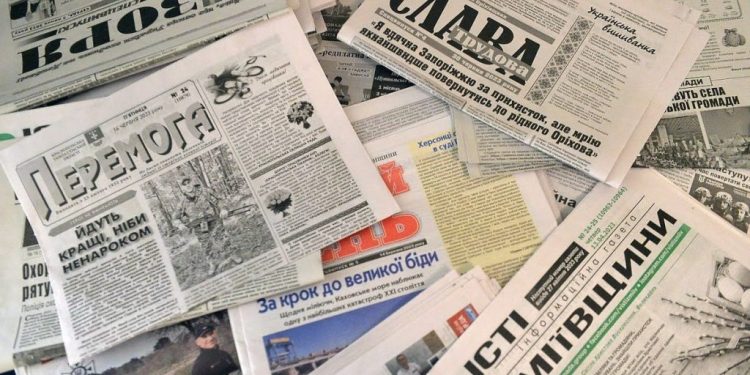
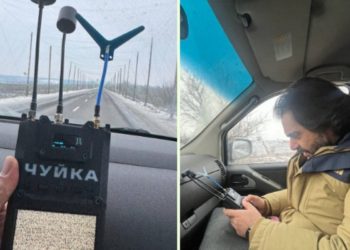
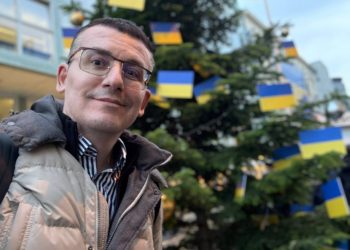
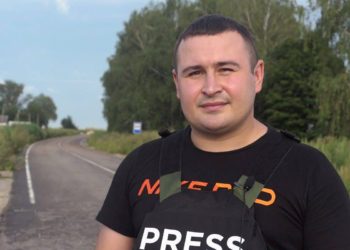













Discussion about this post